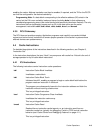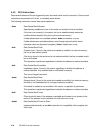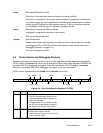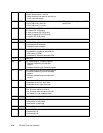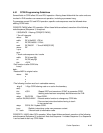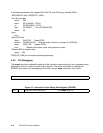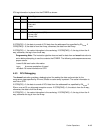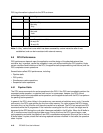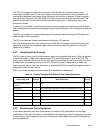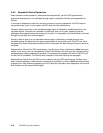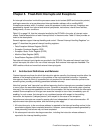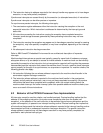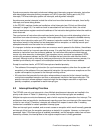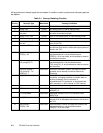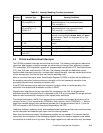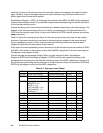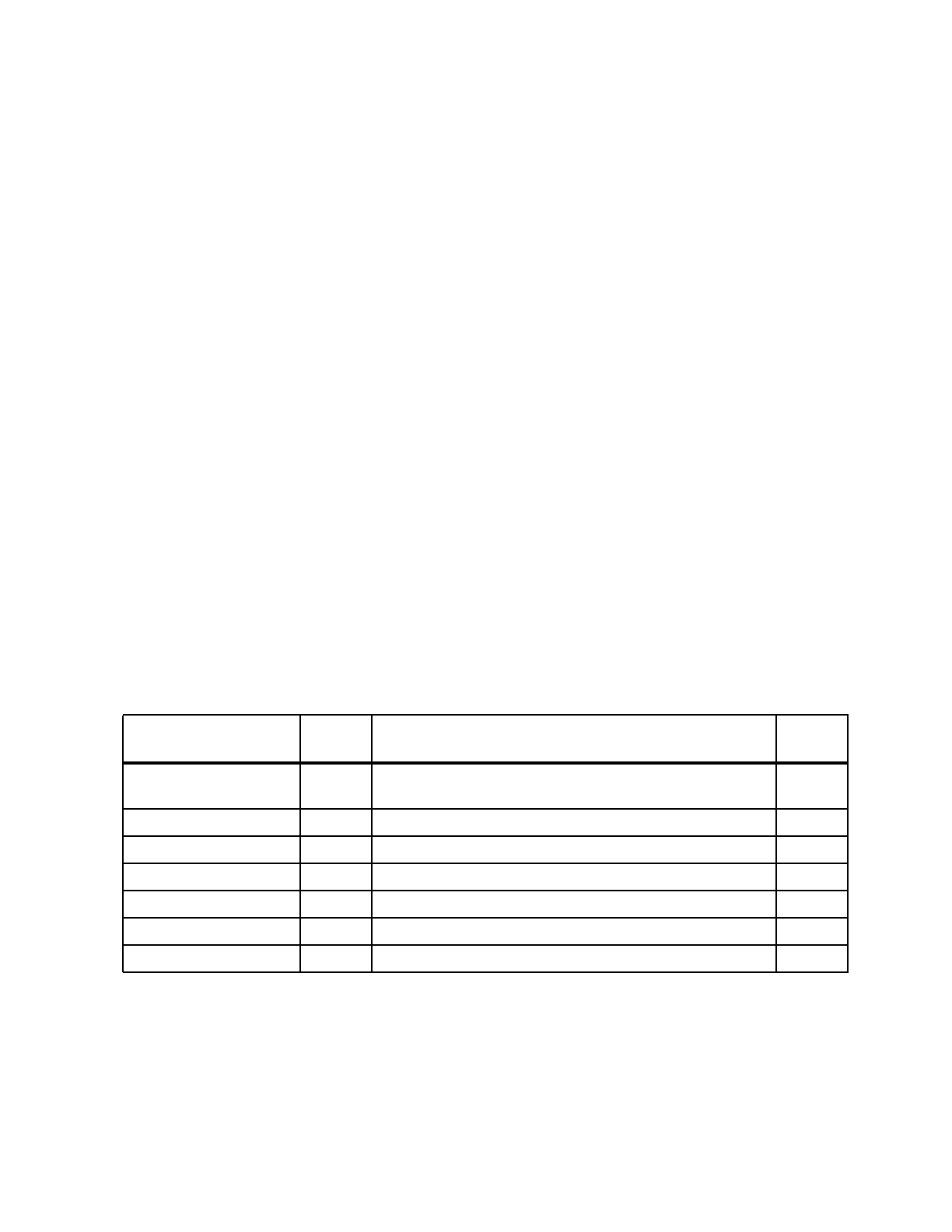
Cache Operations 4-17
The DCU can accept up to two load commands. If the data for the first load command is not
immediately available, the DCU can still accept the second load command. If the load data is not
required by subsequent instructions, those instructions will continue to execute. If data is required
from either load command, the CPU pipeline will stall until the load data has been delivered. The
pipeline will also stall until the second load has read the data array if a subsequent data cache
command is issued.
In general, if the fill buffer is being used and the next load or store command requires the fill buffer,
only one additional command can be accepted before causing additional DCU commands to stall the
pipeline.
The DCU can accept up to three outstanding store commands before stalling the CPU pipeline for
additional data cache commands.
The DCU can have two flushes pending before stalling the CPU pipeline.
DCU cache operations other than loads and stores stall the CPU pipeline until all prior data cache
operations complete. Any subsequent data cache command will stall the pipeline until the prior
operation is complete.
4.6.2 Cache Operation Priorities
The DCU uses a priority signal to improve performance when pipeline stalls occur. When the pipeline
is stalled because of a data cache operation, the DCU asserts the priority signal to the PLB. The
priority signal tells the external bus that the DCU requires immediate service, and is valid only when
the data cache is requesting access to the PLB. The priority signal is asserted for all loads that
require external data, or when the data cache is requesting the PLB and stalling an operation that is
being presented to the data cache.
Table 4-4 provides examples of when the priority is asserted and deasserted.
4.6.3 Simultaneous Cache Operations
Some cache operations can occur simultaneously to improve DCU performance. For example,
combinations of line fills, line flushes, word load/stores, and operations that hit in the cache can occur
simultaneously. Cache operations other than loads/stores cannot begin until the PLB completes all
previous operations.
Table 4-4. Priority Changes With Different Data Cache Operations
Instruction
Requesting PLB Priority Next Instruction Priority
Any load from external
memory
1 N/A N/A
Any store 0 Any other cache operation not being accepted by the DCU. 1
dcbf 0 Any cache hit. 0
dcbf/dcbst 0 Load non-cache. 1
dcbf/dcbst 0 Another command that requires a line flush. 1
dcbt 0 Any cache hit. 0
dcbi/dccci/dcbz 0 N/A N/A



